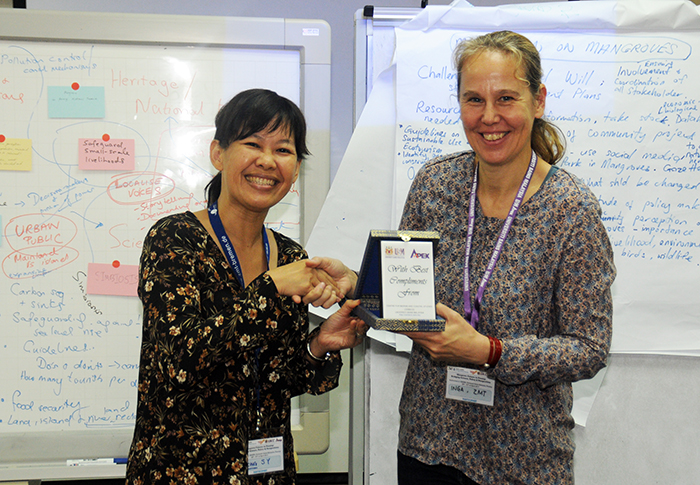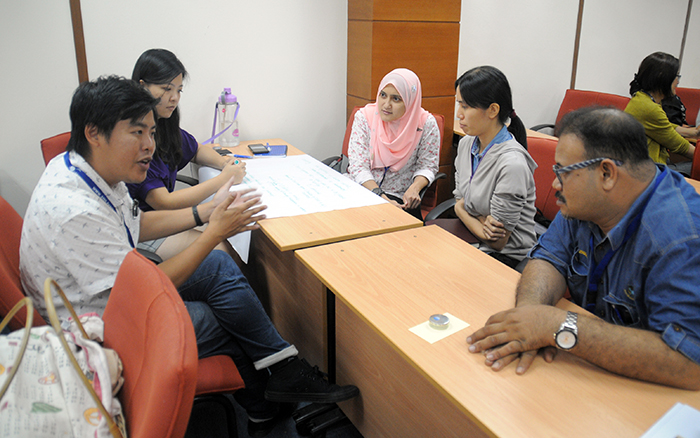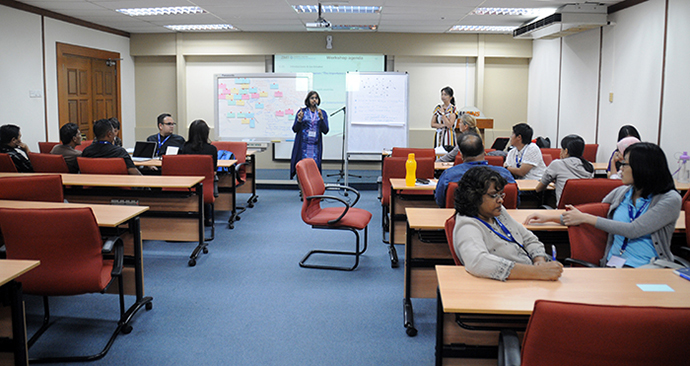THERE IS MORE TO MANGROVES THAN JUST BEING SWAMPS

PENANG, May 2017 - Unlike the beaches of Penang, the mangrove area is less visited or accessible to the public, let alone understood as an ecosystem that actually yields higher productivity than the sandy coastlines.
Mangrove forests are important resources for communities along the coastlines of Malaysia. Mangroves are unique in their biodiversity and provide a means of living to many communities living close to the mangroves.
The mangrove ecosystem plays vital roles, such as:
- For carbon storage
- Providing coastal protection
- Filtering pollutants
- Supporting biodiversity
- Site for nurseries (offshore fisheries)
- Providing food resources: timber crabs, shrimps, mussels, fish, honey
- Providing another attraction for the tourism sector

As a result of extensive development, currently mangroves areas are being threatened and their forests are disappearing. The mangroves would quickly disappear if no preventive measures are taken by the authorities.
Recently, the Universiti Sains Malaysia (USM) Centre for Marine and Coastal Studies (CEMACS) collaborated with Leibniz Centre for Tropical Marine Research (ZMT), Bremen, Germany and held a workshop entitled, "Mangrove Futures in Penang: Bridging Science, Policy and Perspectives" at USM.
The purpose of this workshop was to create a joint platform for policy-makers, scientists and other social stakeholders, including international and local NGOs, to cooperate in discussing key policy issues and which serves to integrate the dynamics and challenges relating to the conservation and preservation efforts of rural and urban mangroves in Penang.

Through a dialogue, it could also bring the entire stakeholders from across a diverse sector such as area management, forestry, fisheries, urban planning, tourism, and housing provision among others, in further sharing on matters relating to the issues on the status of mangroves in Penang, Malaysia.
Discussions from the participants involved in the workshop have resulted in the sharing of ideas to conserve and preserve the mangroves forest that should be taken into consideration by the authorities, NGOs, and the public.
The key ideas from the discussions to conserve and preserve the mangrove forests are to:
- Create more awareness among policy-makers
- Contribute by attending meetings regarding mangroves
- Have talks with family or friends regarding any illegal or damaging actions towards mangroves and to stress the importance of mangroves to the younger generations.
- Hold talks with stakeholders and the government in terms of the development and conservation of the mangrove areas. The conservation area for mangroves should also provide for smaller areas meant for educational purposes.
- Garner the database on economic, social, community impact on mangroves and document them and offer outreach services to change community perspectives toward mangroves.
- Share the best practices and feasible science, as well as policy pathways that similar cities have taken with regard towards preserving and sustaining mangrove reserves in urban contexts.
- Explore the key scientific and policy intersections between similarity and differences of urban mangrove dynamics, social perception, social and economic issues together with ecosystem services.
- Provide education and training to develop environmental awareness among local and fishing communities. This would eventually translate into remedial actions to problems faced in sustaining their livelihood and to protect their coastlines.
- Stop illegal destruction of mangrove areas.
- Establish rules and regulations relating to mangrove areas.
- Prepare a budget for conservation and preservation efforts.
Text: Evelyn Esu Dass and Nadya Nadira Binti Ahmad (Interns School of Communication USM)
- Created on .
- Hits: 1689
